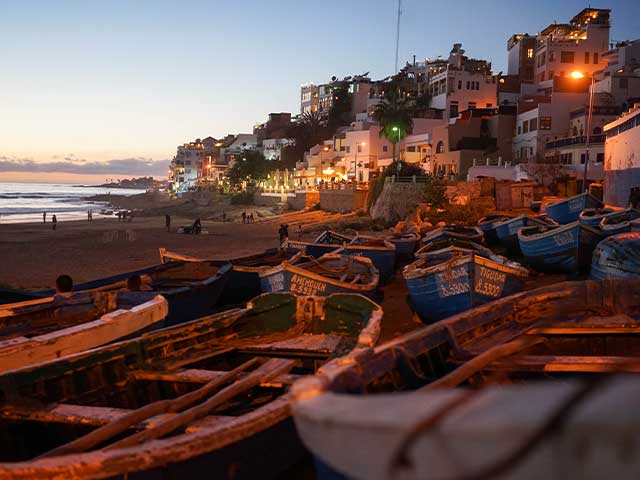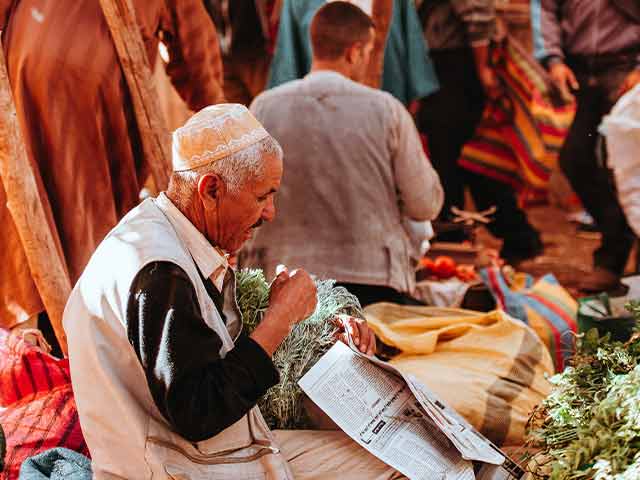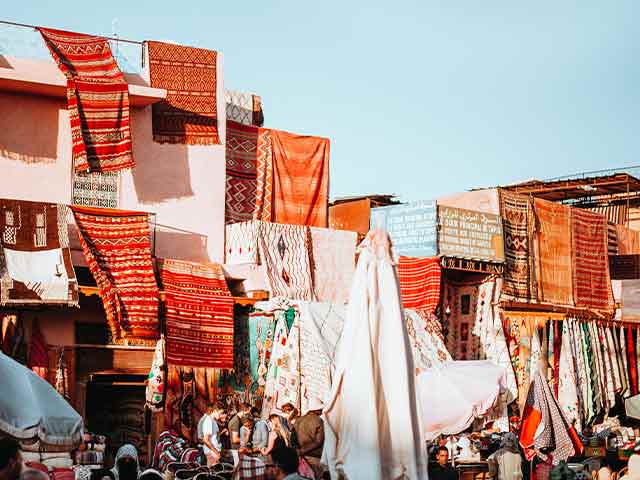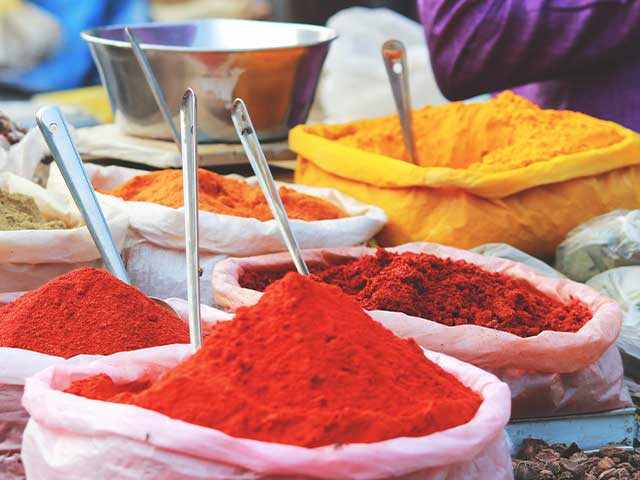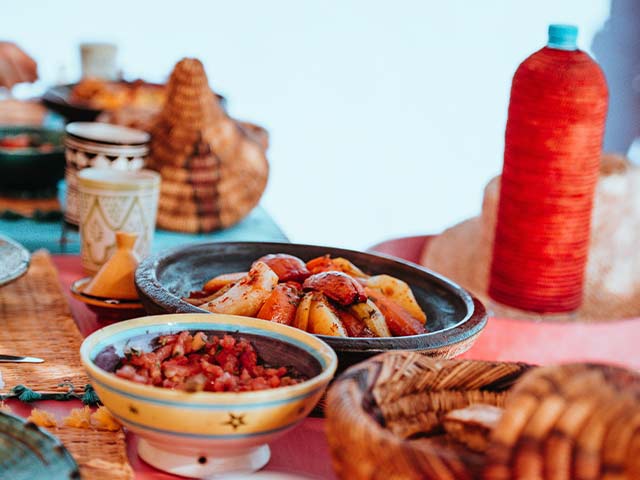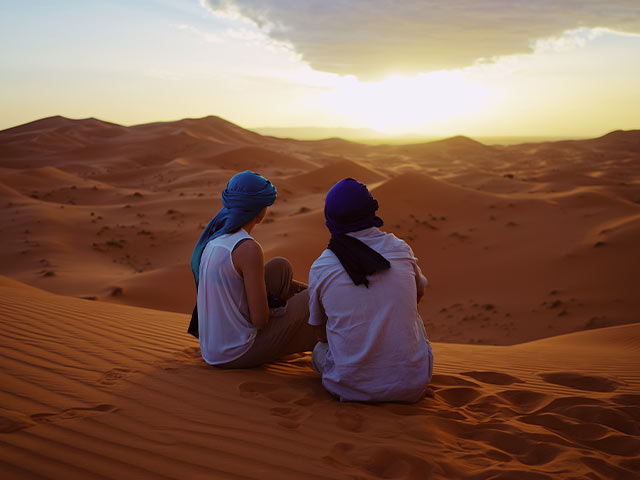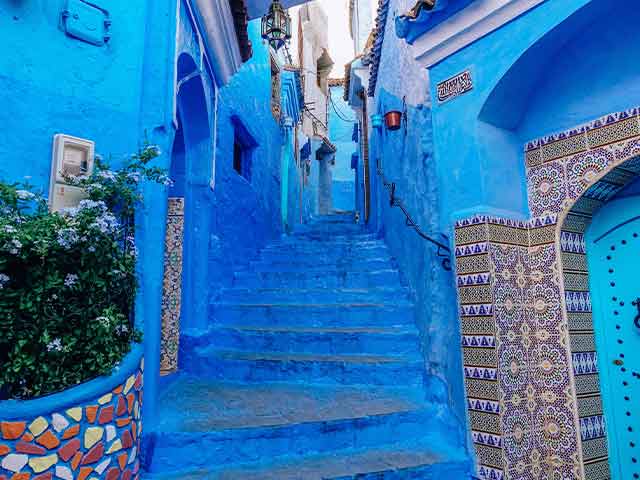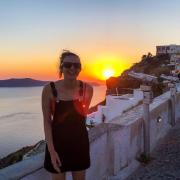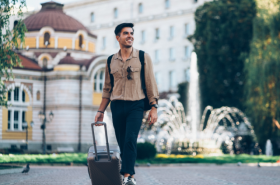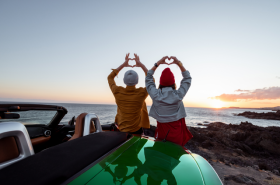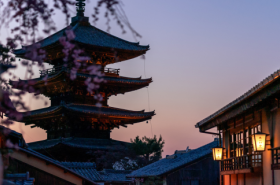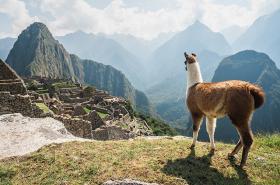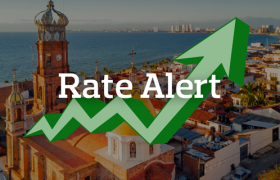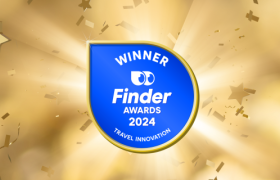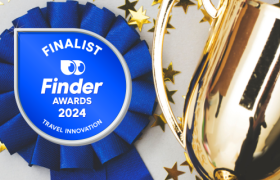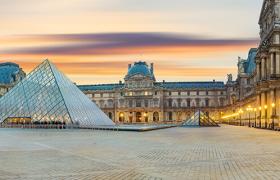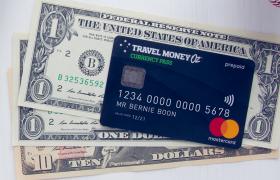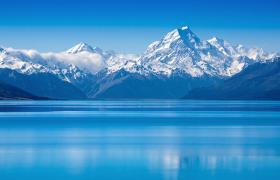Morocco sits at the top of Africa, in between the Atlantic and Meditteranean seas, and is rapidly becoming one of the most sought after travel destinations. The colourful fusion of Arabic and European cultures explodes around you upon arrival, as the bright colours, intoxicating scents and the hustle and bustle overwhelm your senses.
The gateway to Africa encompasses a plethora of landscapes, boasting unforgettable experiences for every traveller. Those seeking luxury will not be disappointed, with five-star accommodation fit for a king. Alternatively, budget travellers will thrive seeking out cheap, market eats and exploring the buzzing souks or street markets.
As you ponder your Moroccan itinerary, deciding between sweeping deserts, vast mountain ranges and ancient cities, we’ve provided some tips, tricks and Morocco basics to ensure a seamless trip.
Morocco Travel Basics
What Language is spoken in Morocco?
Arabic and Berber are the official languages in Morocco, and you will often hear the local dialect, Dairja, spoken as well. The European influence can be heard, with many locals also speaking French and Spanish.
In major cities, you will be able to find English speakers; however, they will be harder to come by the further out you go.
Straight up, you should memorise the two Arabic phrases:
“La, shukran”, which means no thank you - you’ll find out why soon.
“Balack”, which essentially means get out of the way, or lookout. You probably won’t say it, but you’ll hear others yelling it in the busy market streets.
What is the currency in Morocco?
In Morocco, you will use the Moroccan Dirham (MAD). Each dirham is worth 100 santimat, and you’ll find the following denominations:
Coins: 10, 20 and 50 centimes, as well as 1dh, 2dh, 5dh and 10dh
Notes: 20dh, 50dh, 100dh and 200dh.
The dirham is a closed currency, which means you can only take in and leave with MAD 1,000 or less (the equivalent of around 150 AUD). You can purchase MAD at any Travel Money Oz store; however, we recommend giving yourself plenty of time as we may need to order it in for you.
Aside from that, we recommend exchanging some AUD to either USD or EUR cash which you can then exchange when you arrive in Morocco. You can pay with EUR at some shops; however, they will often round up prices, and you will miss out on the best deal.
You can also load your Travel Money Oz Currency Pass with AUD and withdraw MAD at any of the ATMs in Morocco. We always recommend a mixed wallet, with about 60% of your travel budget as cash and 40% loaded onto a card. You’ll be able to use both in the cities, however more remote areas are cash-reliant, so ensure you’re stocked up.
ATMs in Morocco
ATMs are easy to find in bigger cities, so you don’t need to stress about being stranded without cash. With this in mind, they are known to run out of money in busier times.
If you do need to make a withdrawal, we recommend getting a more substantial amount. That way, you won’t be hit with numerous ATM fees, and you don’t have to stress about running out of cash.
Getting around in Morocco
There are a few options when it comes to transport in Morocco.
- Petit taxis hold three people and are affordable; however, there is often a surcharge after 8 pm. Always ensure you negotiate the price before you leave though, as these taxis aren’t metred and drivers will take advantage of the fact that you are a tourist. Be firm in your negotiations and don’t let them intimidate you.
- Metered taxis are an option in bigger cities, though they are slightly more expensive than their petit counterparts.
- Grand taxis hold six people and will take you between neighbouring towns/ cities. A lot of the time, the prices are set; however, you may still need to negotiate. Often these taxis will not leave until all six seats are full.
- Intercity buses are cheap and efficient ways of getting between cities.
- Trains are comfortable and reliable ways of getting around as well, with Morocco having a pretty significant rail network.
- Buses in cities themselves are super overcrowded and can be pretty hit or miss.
- Car rental is an option; however, it isn’t recommended as Moroccan drivers are VERY aggressive and insurance excess can be costly.
Is Morocco safe to travel?
Morocco itself is generally quite safe for tourists, especially in popular cities like Marrakech and Fes. Physically, you are no more at risk than other tourist hot spots around the world. Of course, the nature of the surrounding countries means this can change, so we recommend consulting Smart Traveller and the advice of your travel insurance before leaving.
Once in Morocco, you do need to be mindful of pickpockets, petty theft and scammers. This is especially the case in busy marketplaces. Practice vigilance, trust your gut and follow these tips to decrease your risk:
- Lock up your valuables, including your passport in your hotel. This means jewellery, watches, expensive handbags and excess cash. That way, you are less of a target to potential thieves.
- Hide your money in several places; that way if a bag gets stolen, you won’t lose all of your cash. We’ve written some handy tips on the best hiding spots.
- Don’t walk alone at night, and if you’re a female, we don’t recommend walking alone if possible. During the day, you should be fine; however, the company of an extra person will help lessen the number of inappropriate comments or gestures.
- Don’t go down back alleys. Duh.
- Dress conservatively, with your shoulders and knees covered at all times. Not only is this the cultural norm, but it will also help prevent any unnecessary comments made towards women.
- If something sounds too good to be true, it probably is. In most of the marketplaces, you will find fake guides offering you ‘free’ or ‘no money’ tours. FYI, no money means they will want money. This is where knowing “La, shukran” comes in handy, so be firm and don’t let them intimidate you into doing something you don’t want to do.
Do you need a guide in Morocco?
Yes and no. If it’s your first time to Morocco, or if you plan on going off the beaten track to desert safaris or smaller towns, a guided tour would make your life a lot easier and provide some friends and expert advice. A lot of tours in Morocco are smaller, so you don’t need to worry about huge tour buses. Instead, think of more intimate experiences with a few other like-minded travellers and an expert guide that stress for you.
That being said, many people choose to go to Morocco alone and thrive in the experience. It is just a personal preference and depends on what you plan on doing.
What is the best time of year to visit Morocco?
Morocco is a year-round destination; however it’s worth noting that in summer, it can get seriously hot. Your best bet in terms of money and overall experience is to visit during the shoulder months of April and May and September to November. Not only will there be fewer people, but you will be treated to goldilocks weather - not too hot and not too cold.
Is Morocco expensive to travel?
There is a pretty big wealth gap in Morocco, which means you’ll see a combination of luxurious goods and hotels mixed with budget accommodation and street markets. While Morocco may not be as cheap as you would expect, primarily due to it’s rising popularity, it is possible to travel on a budget.
What to Eat in Morocco
Spice up your life with traditional Moroccan cuisine. Word of warning though, if you don’t like cumin you might struggle as they use it in everything. Here are some dishes you can’t miss while in Morocco.
Tagine - A delicious meat and vegetable dish cooked in a clay dish. No tagine is the same, as everyone has their secret recipe, so you won’t get bored of eating one for dinner every night. Tagine is done well and is often very affordable, costing between 30 and 50 MAD.
Mint tea - A Moroccan staple and the perfect way to wash down any meal, or destress after a big day of touristing. Tea’s are super cheap as well, setting you back no more than 8-10 MAD.
Cous cous - The food so nice they named it twice! Cous cous can be a dish in itself or a delicious side to a main dish like tagine.
Brochettes - Otherwise known as meat skewers, these are your street market staple. Skewers of beef, chicken and lamb are marinated in a delicious blend of spices and cooked over a smokey bbq. One is never enough.
Zalouk - A yummy side dish made of eggplant, tomatoes and garlic, often served with crusty bread.
Dates - a decadent and sweet dried fruit, often served with tea/ coffee or as a dessert.
*It’s worth noting that alcohol can be hard to find, and is often frowned upon in Morocco, making it quite expensive. If you do wish to have a drink, be sure to do it in a hotel or restaurant.
Where to visit in Morocco
Marrakech - A significant economic and tourist hub, you cannot leave Morocco without visiting Marrakech. Be sure to visit the Djemaa el-Fna, or main square and marketplace. The medina, many souks and old city are also must-sees. Have your camera fully charged as the stunning architecture and innately adorned doorways are too gorgeous not to photograph.
Sahara Desert - An overnight camping trip to the Sahara Desert is a once in a lifetime experience, where you are guaranteed to see an incredible night sky bursting with stars. You’ll definitely want to jump on a tour if you plan on doing this, most of which will also include a camel ride along the dunes.
Atlas mountains - Home to some of the most prominent peaks in Africa, the Atlas mountains are a hotspot for skiers and hikers alike. A number of the villages scattered throughout the mountain ranges are still relatively cut off from the Western world, so the chance to witness their life is incredibly profound.
Chefchaouen - The blue city in northwestern Morocco is a photographer’s dream. The blue houses stick out of the countryside like an Instagrammers beacon. It is slightly out of the way; however, it is well worth spending a day or two in this picturesque town.
Fes - Considered to be Morocco’s ‘cultural capital’, Fes is one of the oldest and most authentic cities in Morocco. UNESCO has recognised the Old Town as one of the best-preserved historic towns of the Arab-Muslim world. A word of warning, though, Fes can be an assault to the senses and a bit overwhelming to first-timers.
Taghazout - A small fishing village known for some incredible surfing. A perfect place to put your feet up and unwind after exploring the busier Moroccan cities.
How much to budget for Morocco
Like a fingerprint, your travel budget is unique to you. You’ll need to budget for flights, accommodation and insurance, as well as daily costs like food, activities and transport. Our holiday budget planner can give you a headstart on understanding those daily costs.

